Drag Is in Peril. These Red-State Queens Are Fighting Back
- Oops!Something went wrong.Please try again later.
- Oops!Something went wrong.Please try again later.
- Oops!Something went wrong.Please try again later.
- Oops!Something went wrong.Please try again later.
- Oops!Something went wrong.Please try again later.
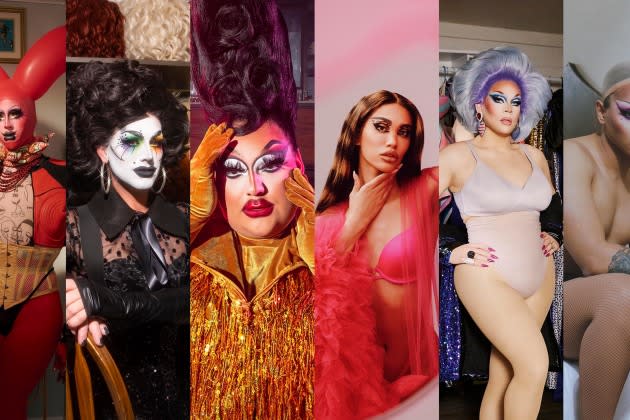
Drag has been under attack in various parts of the United States, with laws aiming to restrict public performance popping up in Tennessee, Arkansas, Texas, and Kentucky, among many others. Some of these laws have been tied up in state court systems over their constitutionality, but they’ve regardless had a chilling effect on venues and events that were once drag friendly, either out of fear of legal consequences or the threat of violence. We spoke with several performers living and working in those embattled states to find out what initially drew them to the art form, what inspires their creativity, and how, no matter what happens, they refuse to give up their crowns.
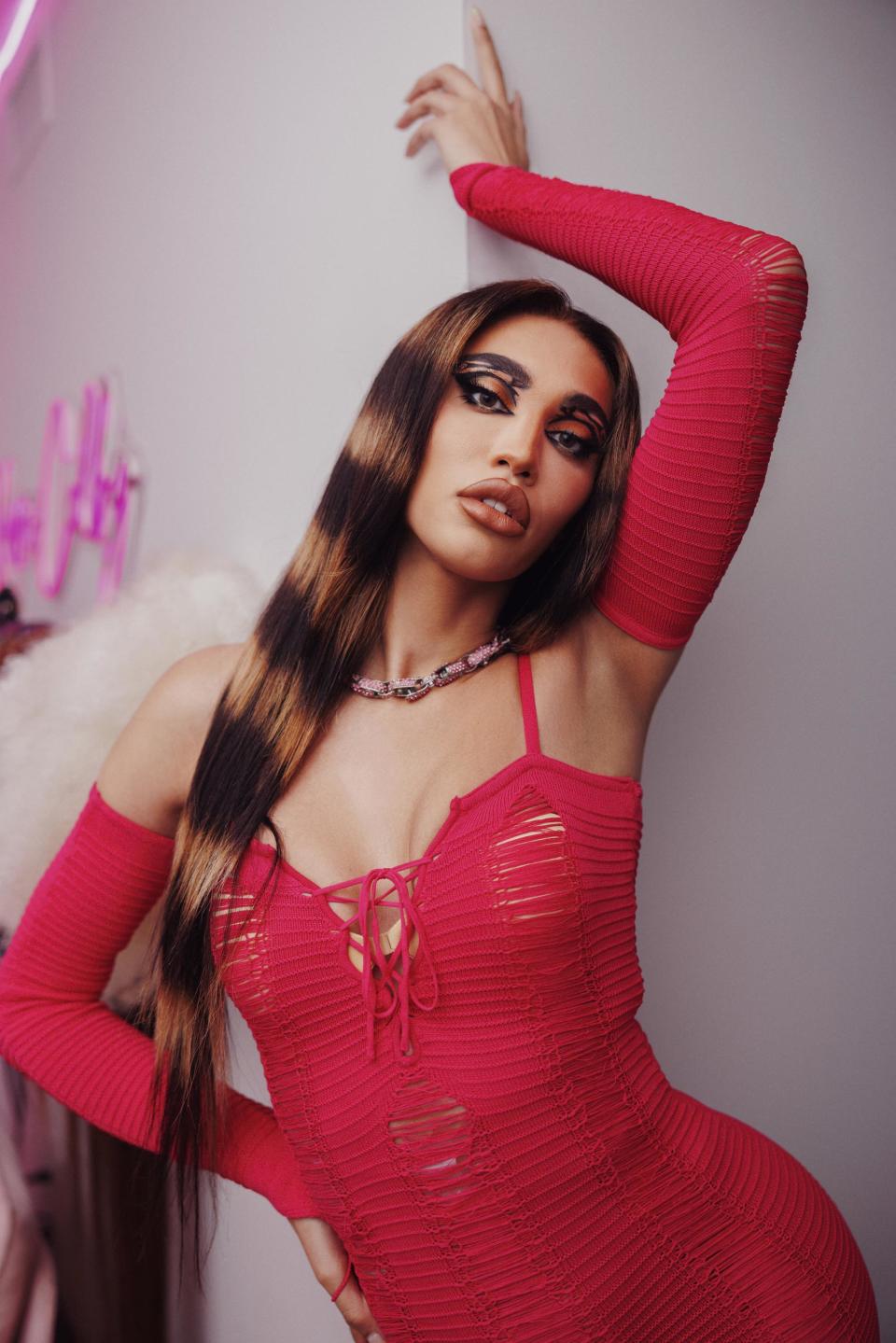
Kerri Colby
For Kerri Colby, drag was like the wardrobe in The Chronicles of Narnia: Once she stepped inside that world, she could embrace who she truly was. “I was able to find a light in me that always existed, but I was never able to see before I transitioned,” she says.
More from Rolling Stone
Oregon Republicans Are Literally Sacrificing Their Jobs to Block a Modest Abortion Bill
Target Removed LGBTQ+ Merch For Employee Safety. Now the Designer Is Getting Death Threats
Colby was raised in Dallas by a Pentecostal Christian family who rejected her identity from the get-go. Asked how her religious upbringing affected her, she says with a laugh: “Oh, my goodness, we could be here all day.” Looking back, Colby believes faithful Christians like her family “mean well” in following the Bible’s teachings, but they miss the point of the Scripture: “It’s about compassion and being a living example of the golden rule,” she explains.
Now she lives by those rules. She sees recent legislative efforts in states like Texas as attempts to “ostracize and limit the visibility of trans people.” But she intends to live proudly as a trans woman and be the “hug that I once needed” for others like her. By standing strong, she says, she’s carrying on the legacy and teachings of her drag mom Sasha Colby, the reigning queen of Drag Race. “I see her art form of drag to be more of a ministry than an entertaining performance,” Kerri says. “She was one of the first examples of a trans woman being so fearless. That’s always stuck with me. And it’s a driving force.” —Tomás Mier
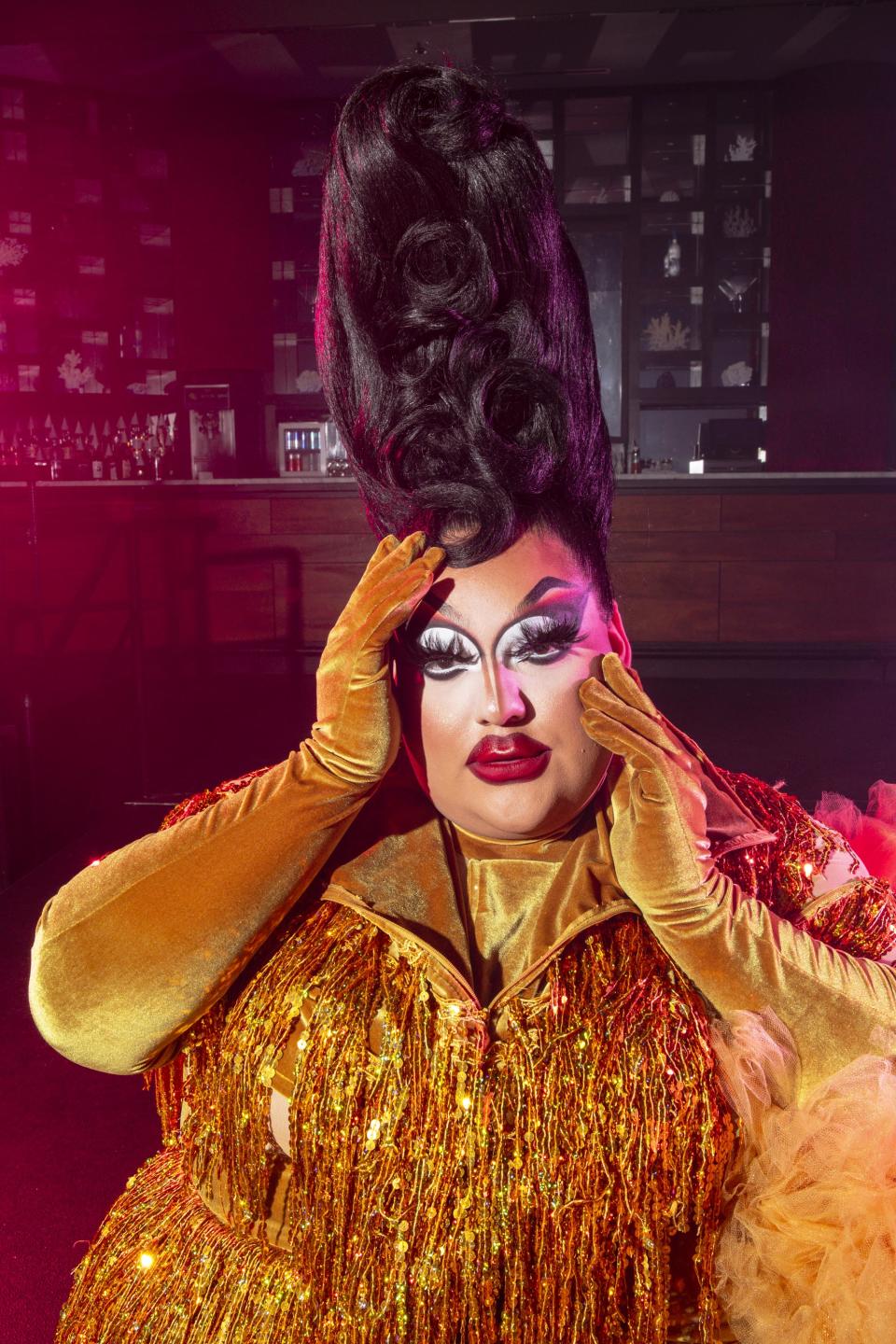
Mistress Isabelle Brooks
“Traditional drag is a dying art form,” says Mistress Isabelle Brooks, “and I feel like it’s my job to keep it alive.” With her glamour and unapologetic candor, the Houston native was a fan favorite to take the last season of RuPaul’s Drag Race. She didn’t, but no matter: “Regardless of who won the crown, I am the winner.”
Brooks built that armor-like confidence thanks to the “tumultuous” relationship she had with her Mexican American family. Growing up, she felt like she “never belonged” nor identified with the machismo they tried to instill in her. When she came out, she knew it “wasn’t gonna fly,” she says, “but I was never fearful of being myself.”
While attending cosmetology school as a teen, Brooks discovered drag on Tumblr. On some nights, she would sneak out to see the drag luminary Chevelle Brooks perform at local gay clubs. As she started to do drag herself, she built a relationship with Chevelle, joking that she “bullied” Chevelle into being her drag mom. She also now has the “gay street gang” of the Brooks drag-queen dynasty to “lean on.” In many ways, drag gifted her the family she never truly had.
Now, Brooks hopes to continue putting both Houston and old-school drag on the map as she plots a tour across the U.S. “Drag allows me to be a heightened version of myself,” she says. “When you see me from head to toe, I want to convey opulence. I want people to be like ‘Oh, my God, is she real?’” And for the drag detractors, Brooks has one thing to say: “I truly am praying for you. Y’all must be miserable.” —T.M.
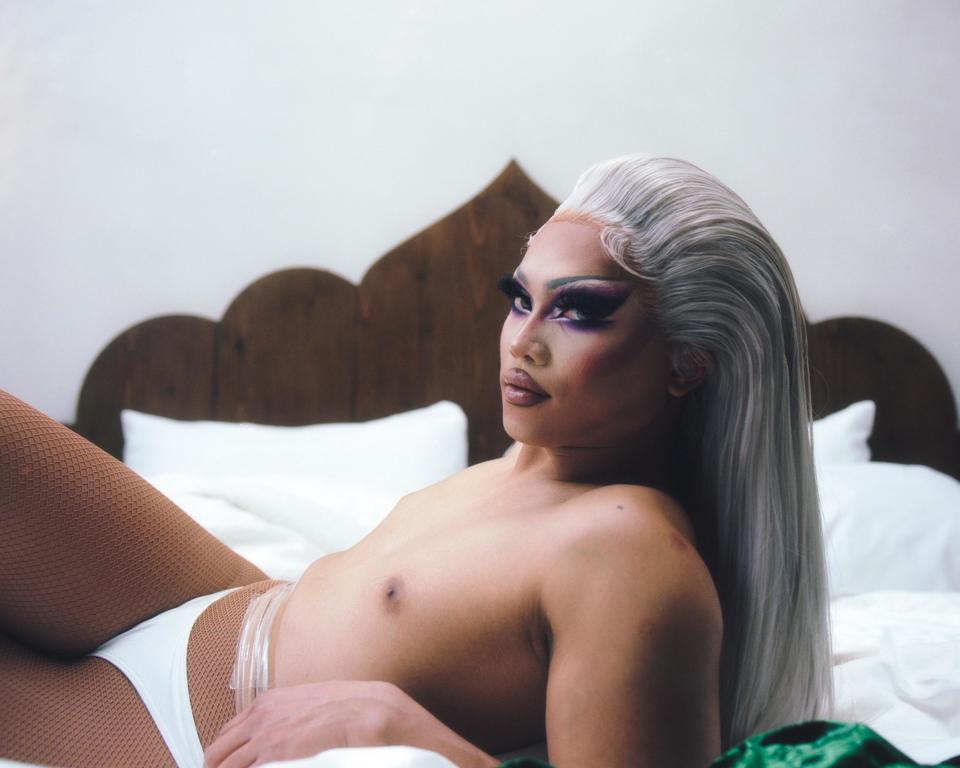
Aura Mayari
Aura Mayari got a taste for performing through musical theater and a taste for drag after playing Angel in a production of Rent. But it wasn’t until she stepped away from the theater for office work that she realized how much she craved the spotlight. “My nine-to-five jobs were in sales, marketing, recruiting,” she says. “I couldn’t find happiness in that. I knew performing was my life, but I didn’t know how that would happen. And then drag happened.”
Mayari had emigrated to the U.S. with her family from the Philippines when she was young, and grew up in Chicago. She tried to assimilate but was sometimes teased about her English pronunciation. Drag became a way to reconnect with her roots — her stage name is Filipino in origin. “[Aura] describes somebody who’s over-the-top, trying to get attention, very confident,” she says. “And ‘Mayari’ is Filipino mythology about a moon goddess.”
Not long after Mayari moved to Nashville in 2020, the gay club Play extended an offer for her to become a cast member at their drag shows. Four months later, she tried out for Drag Race and joined the series’ 15th season. Now, she stays busy traveling to high-profile bookings, working on a cosmetics line, and recording original music. She’s also looking at an uncertain future with the state’s new drag restrictions, but wishes everyone had a chance to feel the therapeutic aspects of drag that she’s experienced. “[Drag] has done so much for me as a person,” she says. “It’s helped me find my purpose. And it’s been my sanctuary. That’s what they don’t really see.” —Jon Freeman

Dusty Ray Bottoms
As a child in Kentucky and southern Indiana, Dusty Ray Bottoms loved to reenact scenes from Disney’s Beauty and the Beast. “I would take my housecoat and put it on as Belle’s dress,” she says. “That is drag. And that was just me by myself having unabashed joy.” In her conservative Christian home, though, that self-expression eventually met fierce resistance. When she was 20, Dusty Ray came out to her family as gay and was sent to conversion therapy. The experience would come to inform her drag look and persona as an adult living in New York City, where she moved at 22, finding comfort in the alternative drag scene.
“My drag was really the way that I was able to dig deep through a lot of unprocessed trauma,” she says. In 2015, she won Bob the Drag Queen’s first Look Queen event with a haunting number about coming out and being told she was “demon-possessed.” She also competed on Season 10 of RuPaul’s Drag Race and is featured in the new documentary Conversion, about survivors of conversion therapy.
Bottoms and her spouse moved back to southern Indiana in the early part of the pandemic, feeling the need to reconnect with family. She currently performs at Le Moo’s family-friendly drag brunch in Louisville. Kentucky’s legislature proposed a law to restrict drag in places where children are present, but it didn’t secure enough votes to pass this session. Whatever happens, Bottoms plans to remain a vocal, visible presence in the city. “We have a lot of work ahead of us in the next year,” she says. “We got lucky that some people got lazy with passing this bill. We just have to keep raising our voices and being the mascots of our community, to make sure everyone knows what’s up.” —J.F.
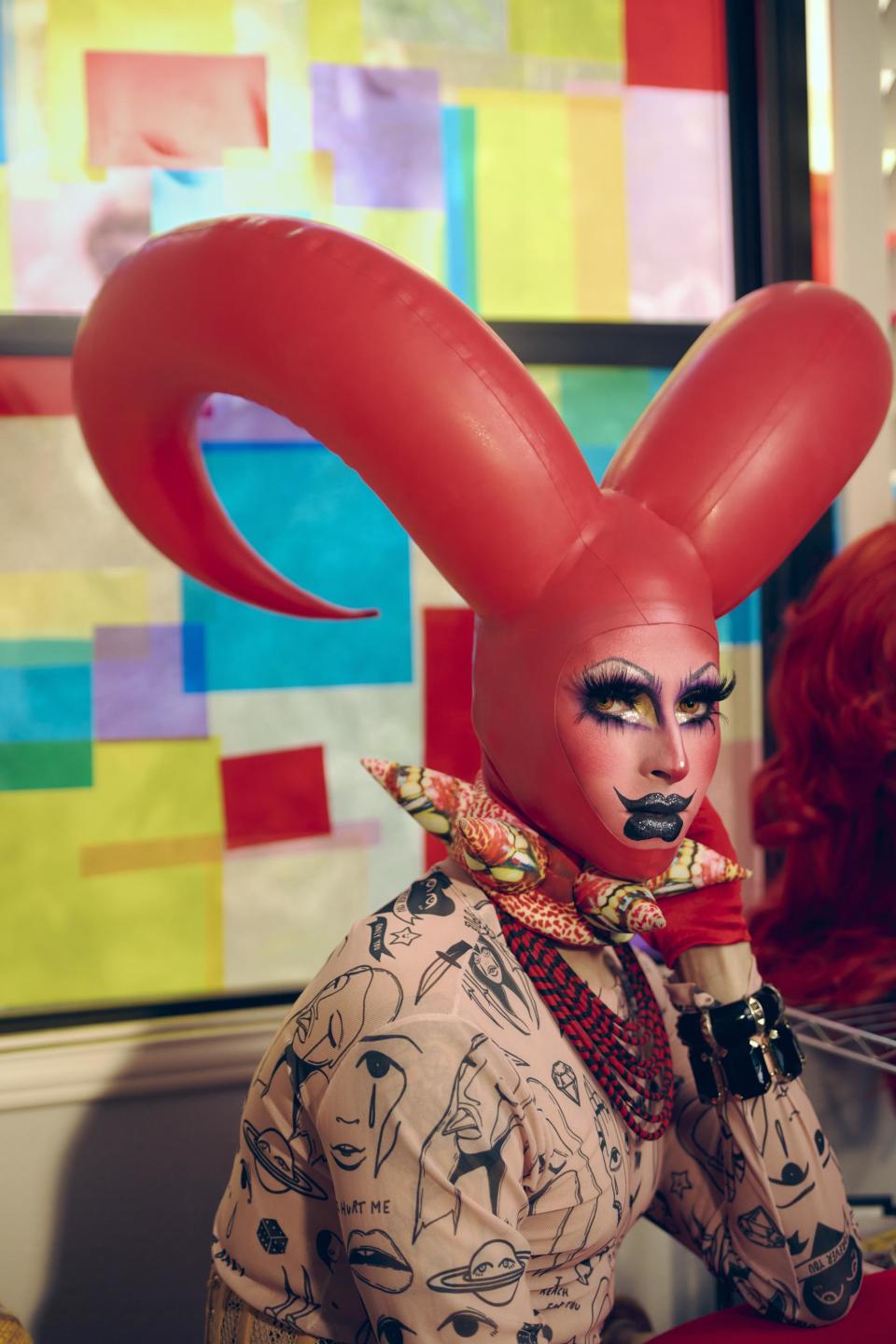
Crystal Methyd
“The Devil is how they view us, but I make it glamorous and beautiful,” says Crystal Methyd with a giggle, explaining her look for this shoot. The “they” she refers to are the conservative Christian voices whose war on drag has sent protesters to picket some of her shows across the South, forcing police to escort her and other queens out of venues. “People fear what they don’t know,” she says. “It’s frustrating that they are trying to put their beliefs onto others. It’s just like, ‘Live and let be.’ If you don’t like it, don’t buy a ticket.”
Before all the controversy, Methyd was a drag pioneer in her hometown of Springfield, Missouri. In 2015, she founded “Get Dusted,” a monthly event — hosted at a straight club — where she helped baby queens and even some straight guys get into drag for the first time. (“If it’s at a venue they’ve been [to], they’ll let loose faster,” she recalls thinking.) In just a few iterations, it grew exponentially, and helped revitalize the drag scene in the city. “I was doing all that on top of my full-time job. [Drag] used to be my escape whereas now it’s my everything,” she says.
Despite drag’s growing ranks of detractors, Methyd doesn’t see a world where she isn’t portraying the cartoonish character that landed her in the top three of Drag Race: “It just unlocks all the secrets inside you. ” —T.M.

Vidalia Anne Gentry
Vidalia Anne Gentry left her hometown of Nashville for college and graduate school, earning degrees in musical performance for viola. But when she returned to Tennessee, her drag persona blossomed. “It was the intersection of that performance energy and that artistic expression,” she says. To honor her roots, she chose a beloved Southern cooking staple — what she called “the supreme onion” — for her first name, and Anne Gentry so that her initials would spell “VAG.” She says by way of explanation, “It’s literally just a body part.”
One of the first queens to expand her work outside of Nashville’s gay clubs, Gentry is a pioneer in the city. (“The drag scene in Nashville four years ago versus now are two very, very different things,” she notes.) Even so, she reveres the storied past of Nashville drag, from the mid-Nineties Lower Broadway drag bar Cowboys LaCage to the late, great performer and activist Bianca Page. “Being a drag queen who’s HIV-positive and advocating for HIV funding and research, and being a proud Nashvillian, and being a force as a performer — that’s the kind of thing I want to leave behind as well,” she says.
To that end, Gentry has been on the front lines fighting Tennessee’s restrictive drag law — and has a theory as to why the state government has keyed in on drag and trans rights. “Both of those things insist upon self-expression and individuality,” she says. “Fascism is fundamentally threatened by both of those things.”
With those stakes, don’t expect Gentry to back down anytime soon. “For me, this is personal,” she says. “The community that I have plugged into here is my home. When that community is being threatened in a way that suggests we are not welcome, it really fires me up and makes me angry.” —J.F.
Best of Rolling Stone

